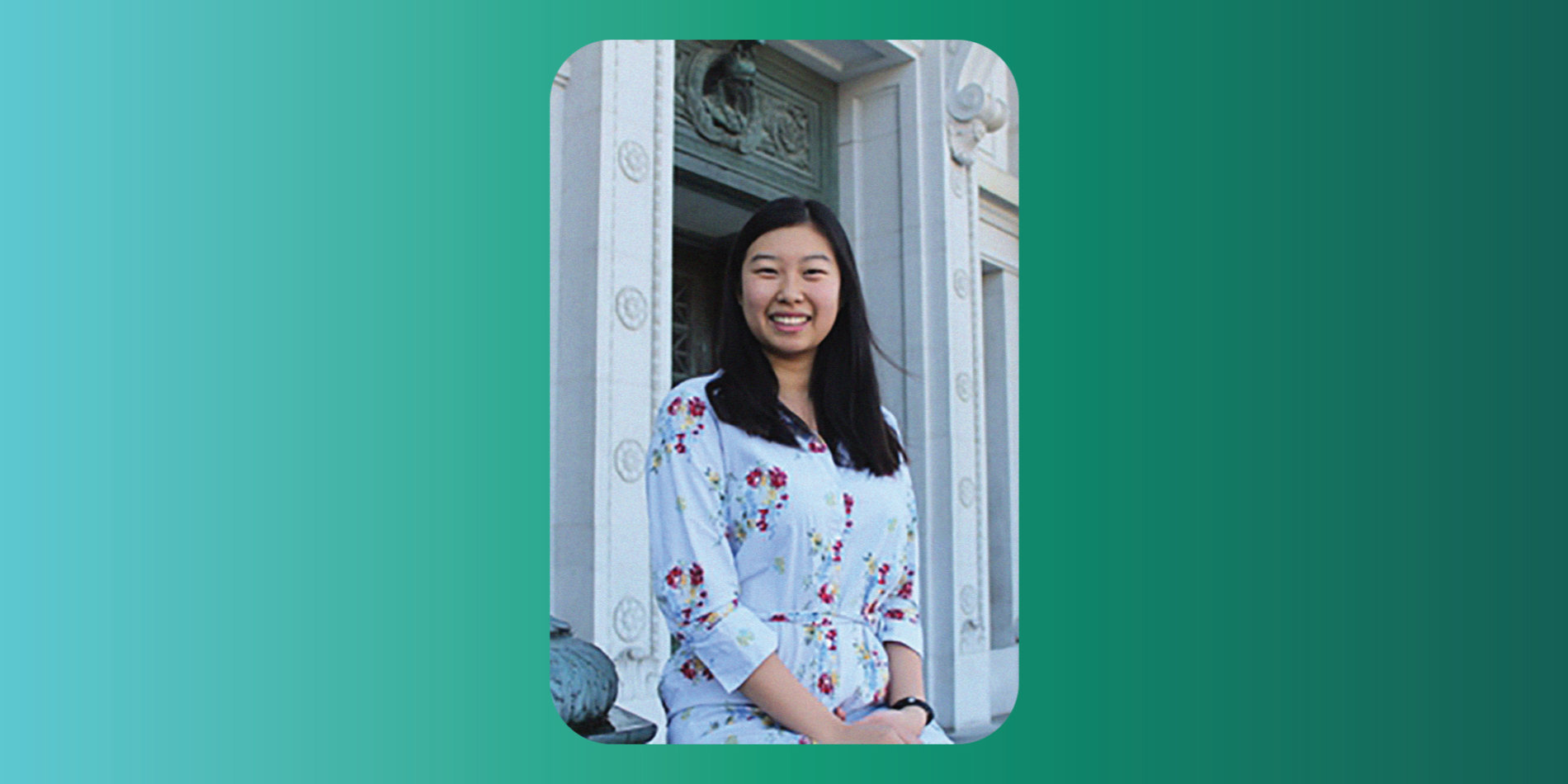Lily Shang investigates human biological systems
For Lily Shang, the lifelong allure of biochemistry was born in the kitchen.
In a household of emigrants from China, cooking was the unifying language in Shang’s family. Time in the kitchen with her mother inspired an appreciation for home-cooked meals and a fascination with the molecules that give food taste and texture. Cooking and chemistry went hand-in-hand and instilled in her a curiosity about biology and applications to the wide world around us.
As an undergraduate at the University of California, Berkeley, where she is currently a senior, Shang had previously done research on everything from lab-grown meat to novel proteins in tardigrades, an other-worldly micro-organism known as the “water bear.”
In her summer at Stanford Undergraduate Research Fellowship (SURF) program, Shang worked on a project in professor Virginia Winn’s lab under the mentorship of Dr. Jay Sarkar. The work, she said, fulfilled her interest in translational medicine — biochemistry with direct application in human life. From her experience she is left with the satisfying sense that STEM is a very diverse and interdisciplinary field — and that it’s wide open.
Stanford SURF provided “my first experience with human biological systems,” says Shang, who investigated the complexity of proteins and their applications to aging and disease.
“It is fascinating to me to see scholars with backgrounds in mechanical engineering or materials science working on biological applications,” says Shang, who is the first student in her family to attend college.
Before participating in Stanford SURF, she had been a mentor for Splash at Berkeley, which brings high school students to campus and creates an environment that encourages interdisciplinary learning. She was able to manifest her love for bioengineering as a mentor and organizer for the UC Berkeley Bioengineering High School Competition, where she guided a group of high school students on a research design project in bioengineering, trying to spark their curiosity in the topic.
Now she is the mentee. “SURF 2020 has made the entire graduate school process less daunting,” says Shang, who plans to apply to continue her studies toward a PhD in bioengineering.



